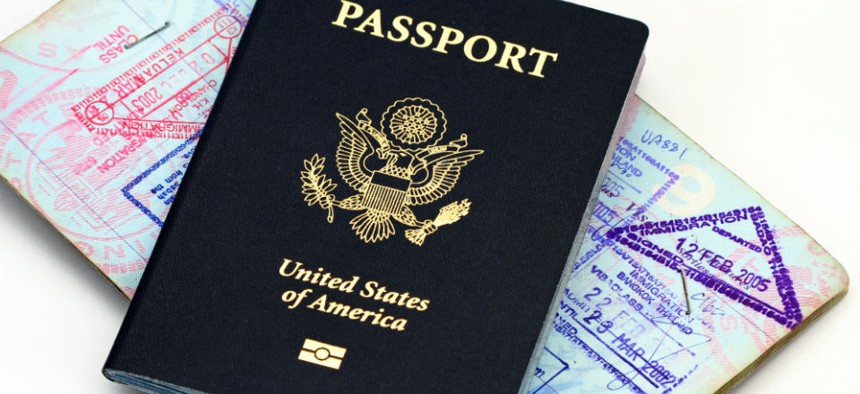
charles taylor / Shutterstock.com
Should the U.S. Revoke Passports of Americans Fighting for ISIS?
Several lawmakers say that’s essential to keeping them from attacking U.S. soil.
The United States can deny applications for or completely revoke Americans' passports for a number of reasons: if they get committed to a mental institution, fall behind on child-support payments, or join an enemy nation's army.
Several lawmakers this week have called upon that last reason to justify revoking the passports of Americans who are fighting for the Islamic State in Iraq and Syria. But for the more than 100 Americans believed to be fighting alongside the terrorist group in the Middle East, the United States does not specifically have the power to revoke their passports.
That's because ISIS is not a foreign state. According to the Immigration and Nationality Act, the United States can revoke the passport of any citizen who fights in the military of a country hostile to America. ISIS, which in the last month publicly beheaded two American journalists, is certainly hostile. But its status as a terrorist group rather than a recognized foreign state leaves the passports of Americans who join their cause untouched.
At a hearing of the House Homeland Security Subcommittee Wednesday, Republican Rep. Jeff Duncan of South Carolina lamented what to him seem like semantics. "This is a real threat," he said. "We need to revoke the passports of Americans that have gone to fight there."
Other GOP lawmakers agree. Sen. Ted Cruz of Texas introduced on Monday the Expatriate Terrorists Act, which would allow the government to strip the citizenship of those who join or give assistance to a "designated foreign terrorist organization." Reps. Michele Bachmann of Minnesota and Ted Poe of Texas have introduced similar legislation in the House.
Supporters of these bills say that seizing passports is a crucial step to keeping Americans fighting for ISIS from returning to the U.S. for an attack. At Wednesday's hearing, members expressed concern with the Visa Waiver Program, which allows people with passports from participating countries, most of which are in Europe, to freely travel to and from the U.S. for up to 90 days without a visa. Subcommittee chair Candice Miller, R-Mich., questioned whether it put America at risk, and Rep. Curt Clawson, R-Fla., said that the program, created in 1986, is "yesterday's tool for today's world."
As more Westerners—such as the masked commandant with the East London accent shown beheading two American journalists on ISIS-made videos—reveal their involvement with the terrorist group, concerns rise about the threat of an attack on U.S. soil. According to a CNN/ORCpoll released Monday, seven out of 10 Americans think ISIS could launch an attack against the U.S.
Passport revocation could in part tighten the reins on American involvement in a terrorist group that has vowed to destroy the West. But it's clear that with or without Americans joining its cause, ISIS has staying power in the Middle East.
(Image via charles taylor / Shutterstock.com)







